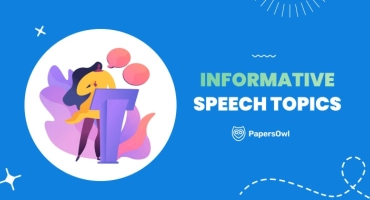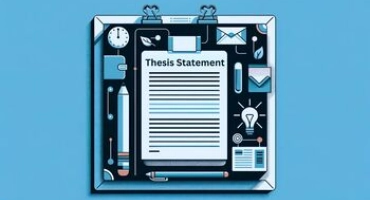How to Write a Personal Statement for College or University
Table of contents
- 1 Analyze the Prompt
- 2 Self-Reflection and Brainstorming
- 3 Crafting the Statement
- 4 Best Practices for Writing a Personal Statement
- 4.1 Maintaining Authenticity and Honesty
- 4.2 Keeping the Statement Focused and Concise
- 4.3 Avoiding Clichés and Overly Complex Language
- 4.4 Show, Don’t Tell
- 4.5 Align with Institutional Values
- 4.6 Connect Past, Present, and Future
- 4.7 Resilience Narrative
- 4.8 Read Other Students’ Personal Statement Examples
- 5 Guiding Your Personal Statement to Success
- 6 FAQ
Writing a great personal statement is one of the most important steps in getting into a college, university, or graduate school. It can help you stand out from thousands of other applicants. Yet, many undergraduate students don’t even know what is a personal statement. In this article, we will explain everything you need to know. We will do so by following these points:
- Checking the requirements and learning all about the university;
- Brainstorming ideas and understanding which of your qualities and experiences should stand out;
- Crafting a text balancing different factors like following instructions while being authentic; being thorough yet to the point; explaining how your past will contribute to the future;
- Necessity to provide concrete examples instead of just listing your qualities.
Join us on this journey. This personal statement guide could help you change your life.
Analyze the Prompt
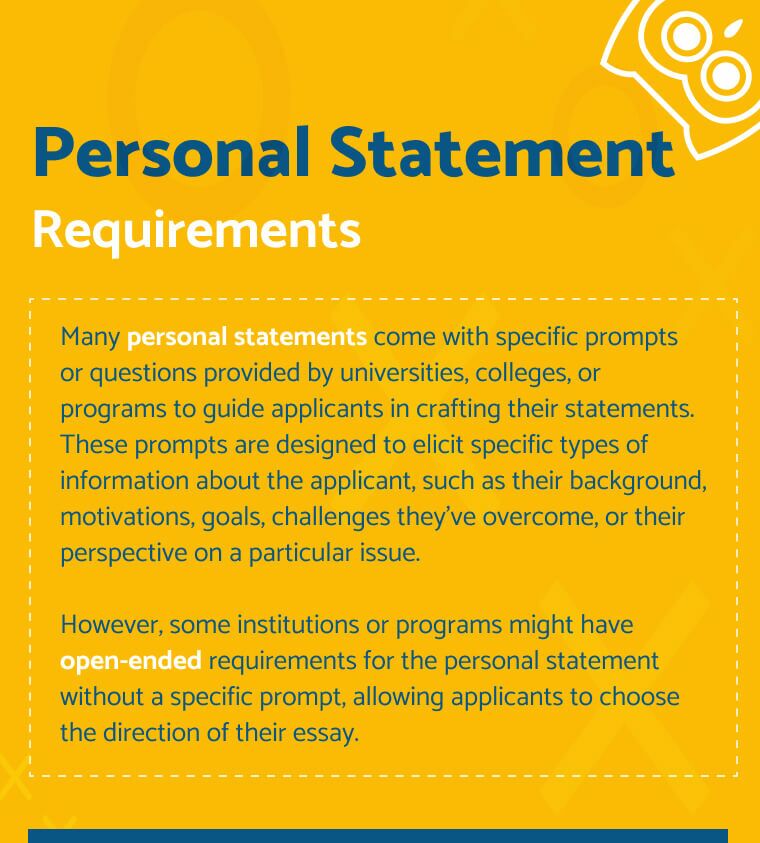
Many young people don’t know how to start a personal statement for college. As with many other types of essays, you should begin with preparatory work. So start looking at the prompt provided by the university you’re applying to. Knowing and following these guidelines can have a major impact on your college application process.
The university’s application materials aren’t just a suggestion. If you don’t follow these guidelines, it can signal a lack of focus on detail or a lack of follow-through—signs that universities don’t look for in their students. However, we don’t want to just write vague suggestions. So, we have collected a few practical tips that can effectively help you with starting.
- Read between the lines. Sometimes, what isn’t said explicitly can be as important as what is. Then, look for clues about the values and goals of the institute.
- In-depth research. Research everything you can online about the college or university you are applying to. Their mission, story, and everything in between will help you know what to write.
- Find the points of contact. Figure out what you and the institution have in common, how you can complement each other, and why you are the perfect fit for them. This is exactly what you will have to explain in the university personal statement.
Self-Reflection and Brainstorming
Before you start writing the first draft, think about who you are, what you want, and why you are applying. We know these seem like existential questions for their own sake. Yet, you should be able to answer them. This is where your effective personal statement takes shape.
Begin by reflecting on your life experiences. Think about your academic achievements and your extracurricular activities. But also about your personal accomplishments and your professional experience. Figure out what your strengths are. What is it that makes you unique? What obstacles have you faced to get to who you are now?
If you can identify these simple points, you can write something that gets across who you really are. In particular, focus on your transformative experiences. Figure out what moments have changed your life. Admission committees usually want to understand how you react when faced with difficulties. They need this to see if you have what it takes to study at their university or college.
Finally, try to connect these personal experiences of yours to your academic goals. How have your life experiences led you to this particular field of study/program? What lessons have you learned that make you a great candidate? By weaving your personal journey into your chosen path, you are demonstrating to the admissions committee that you are not just a student. You are a unique individual with a compelling story and a clear purpose. This is what a strong personal statement should prove.
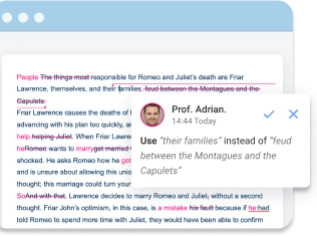
Crafting the Statement
Writing a good personal statement is like creating a work of art. Every word must be meticulously chosen, and every sentence must be carefully constructed. The space at one’s disposal is not much, so everything must be in its place without the slightest error. Now, let’s see how to structure the document, starting from the introduction.
Introduction
Just as in a newspaper article or a good book, the introduction serves to get the reader’s attention right away. You should aim to catch the professors’ attention from the first paragraph. After the heading for a personal statement, you may begin with a quote or a powerful phrase encompassing your strivings or mirroring the area you want to study.
After this hook, provide a brief overview of who you are. Write your background info: your age, education, qualifications, skills, and personal characteristics. Masterclasses, volunteer work, contests, internships, and practical training related to your future career demonstrate your determination and motivation. You shouldn’t write an autobiography essay listing all of these things. Choose only the most significant and representative event to make a powerful first impression.
Body
It is in the body that you will be able to substantiate your claims, provide specific details, and demonstrate that you are the perfect person for the program to which you are doing the college application process. Through the sentences you write in this section, you will allow the university admission team to really get to know you.
Start sharing stories that show your personal growth and development. They could be challenges you have overcome, moments of self-discovery, or experiences that have shaped your character. Use to-the-point examples, there is no need to be mysterious. And if you’re thinking, “Someone can write a personal statement for me”, well, they’ll have to know all about you. Only with these student statements can be effective.
In your personal statement for application, then, describe your experiences, internships or other types of projects. Recently, there has been a special interest in nonacademic activities. Often, they say more about the person writing the college personal statement essay than long discussions about their academic achievements.
Conclusion
In your conclusion, the goal is to leave an honest impression of yourself on the admissions committees. This is your final opportunity to present a compelling case for your admission. Summarize the main points you covered in your personal statement. Remind the reader of your strengths, accomplishments, and personal growth path, but also reiterate your passion for your chosen field.
When it comes to the last sentence of this college essay, our advice is to conclude on a forward-looking note. Talk about your future plans, and share your aspirations and goals, both academic and career-related. At PapersOwl, we always suggest explaining how the specific college or university program aligns with your aspirations. Imagine that you have already been accepted and demonstrate why you would be a great addition to this institution.
One final note. When you follow this personal statement structure, try to maintain a coherent narrative that flows fairly smoothly throughout the whole statement. Introduction, body, and conclusion should not be sections separate from each other. They should be a single block, obviously divided into paragraphs, but one that can be read smoothly and without pauses.
Best Practices for Writing a Personal Statement
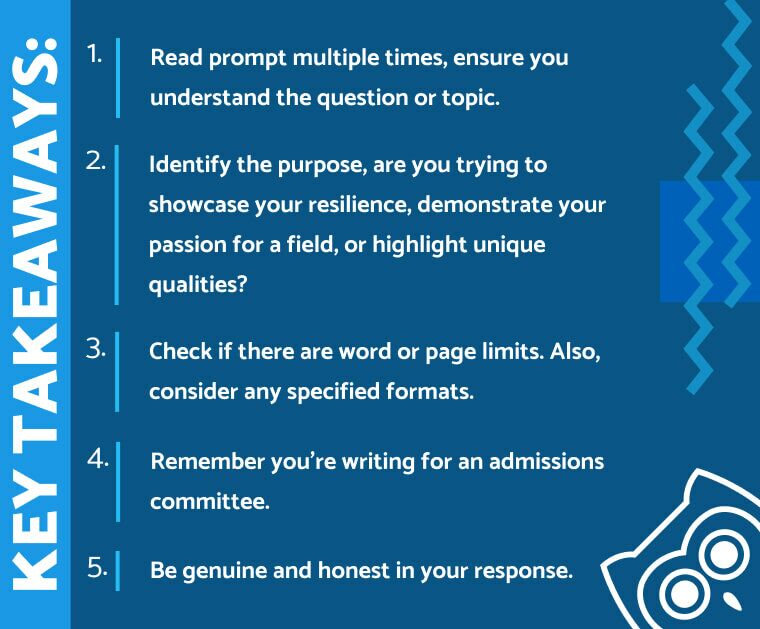
We have seen how to prepare yourself for the writing part, and we have seen what the structure of a personal statement should be, as well. Now we will go through some useful advice on how to convey every aspect we have already mentioned better than other candidates.
Maintaining Authenticity and Honesty
Never copy-paste your personal statements for college from the internet! Also, don’t prepare one and the same essay for many different institutions. The admission committee members, thanks to their experience in many colleges, know college admission essays inside out. They will notice a plagiarized or low-quality, standardized paper from just the first couple of sentences and quickly discard it. By contrast, if they see tailored, original, and advanced work, your admission chances vault to the top.
Keeping the Statement Focused and Concise
In a world full of words, brevity can be a real strength. Admissions officers are hard-working professionals who are responsible for reviewing countless personal statements. They do not have a whole afternoon to dedicate to your statement. Plus, your ability to share your story and aspirations in a concise manner shows your communication skills. Then, do not underrate the word count for a personal statement, as a character limit might even apply in some cases.
Avoiding Clichés and Overly Complex Language
The format for personal statement may vary, but always avoid boring clichés. Make sure your words reflect who you really are, not what you pretend to be. Stick to clear, vivid language that’s unique to you and your story. At the same time, choosing an overly complex language for personal statements is never a good choice. It might distract the reader from what you’re saying.
Show, Don’t Tell
Personal statements aren’t about listing your qualities. You need to provide concrete examples. For example, if in your college personal statement, you want to talk about determination, paint the picture of a time when you proved to be determined. This will certainly interest the admissions committee more than just reading, “I’m very determined”.
Align with Institutional Values
Personal statements for uni applications should all be different because each university is unique. It is crucial that you show you have understood what is special about the institution you are applying to. Start by researching the university’s mission statement, core values, and academic programs.
Your personal statement, then, should be aligned with the values and aspirations of this precise university or college. This is also why you should not use the same university application for different institutions. You need to show that your own path needs to meet the university’s path.
Connect Past, Present, and Future
Personal statements should be very descriptive. Explain how your qualifications and skills cultivated in the past may become fundamental for your desired purpose. List your unique features or experiences and show how you can be useful in your future profession. Use powerful expressions to convince the admission committee members, but don’t overdo it. Stay logical, and do not lie.
Resilience Narrative
Resilience is the ability to bounce back from challenges and make sure setbacks become chances to grow. In many interviews, students are asked to describe a moment when they faced an intellectual challenge and how they reacted. Keep this in mind when writing your personal statement outline. This is the kind of information the college admissions committee wants to gather. Immediately giving them some examples from your life could be very insightful for them.
Read Other Students’ Personal Statement Examples
If you’re still clueless about how to write personal statement for university, try to find examples of successful essays. A good ready-made paper in front of your eyes may be of great importance and could inspire you in many ways. However, remember to always use your own words.
You may follow the general guidelines and principles of the powerful essay composition, but the stuffing – achievements, abilities, academic interests – should be individual. Read an example of a personal statement, but it is your own voice that should emerge.
For those out of inspiration, there are also other options. For example, you could consider buying a personal statement online from experts. In this case, you’ll get a perfectly formatted work complying with the personal statement formats for college and written in a logical manner.
Guiding Your Personal Statement to Success
When you create a personal statement, remember it’s not just a bunch of words. It’s about your story, what you want to achieve, and how you want to share it with the world. We’ve gone over the key elements of a compelling personal statement, like staying authentic, staying focused, and avoiding the usual cliches.
Use examples to show off your qualities, make sure they reflect the values of the school and tie it all together. Show off your resilience and draw inspiration from other people’s stories. Now that you know what to expect, go ahead and write your best personal statement with confidence. It’s the first step to achieving your goals.




